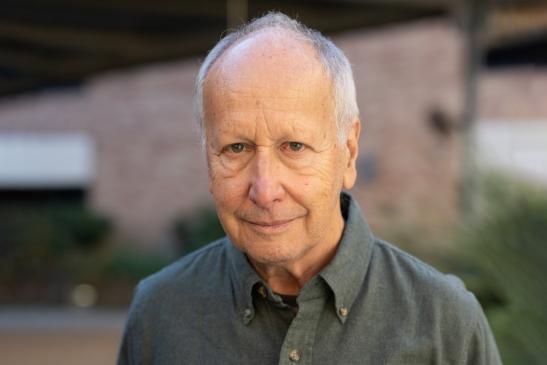
Luis A. Caffarelli awarded the 2023 Abel Prize
free-boundary problems and the Monge–Ampère equation.».
The Norwegian Academy of Science and Letters has decided to award the Abel Prize for 2023 to Luis A. Caffarelli of the University of Texas at Austin, USA.
Photo: Nolan Zunk, University of Texas at Austin
Differential equations are tools scientists use to predict the behaviour of the physical world. These equations relate one or more unknown functions and their derivatives. The functions generally represent physical quantities, the derivatives represent their rates of change, and the differential equation defines a relationship between the two. Such relations are common; therefore, differential equations play a prominent role in many disciplines including engineering, physics, economics, and biology.
Partial differential equations arise naturally as laws of nature, to describe phenomena as different as the flow of water or the growth of populations. These equations have been a constant source of intense study since the days of Isaac Newton and Gottfried Leibniz. Yet, despite substantial efforts by numerous mathematicians over centuries, fundamental questions concerning the existence, uniqueness, regularity, and stability of solutions of some of the key equations remain unresolved.
Technically virtuous results
Few other living mathematicians have contributed more to our understanding of partial differential equations than the Argentinian–American Luis Caffarelli. He has introduced ingenious new techniques, shown brilliant geometric insight, and produced many seminal results. Over a period of more than 40 years, he has made groundbreaking contributions to regularity theory. Regularity – or smoothness – of solutions is essential in numerical computations, and absence of regularity is a measure of how wildly nature can behave.
“Caffarelli’s theorems have radically changed our understanding of classes of nonlinear partial differential equations with wide applications. The results are technically virtuous, covering many different areas of mathematics and its applications,” says chair of the Abel Committee Helge Holden.
A large part of Luis A. Caffarelli’s work concerns free-boundary problems. Consider, for instance, the problem of ice melting into water. Here the free boundary is the interface between water and ice; it is part of the unknown that is to be determined. Another example is provided by water seeping through a porous medium – again the interface of water and the medium is to be understood. Caffarelli has given penetrating solutions to these problems with applications to solid–liquid interfaces, jet and cavitational flows, and gas and liquid flows in porous media, as well as financial mathematics.
Enormous impact on the field
Caffarelli is an exceptionally prolific mathematician, with more than 130 collaborators and more than 30 PhD students over a period of 50 years.
“Combining brilliant geometric insight with ingenious analytical tools and methods he has had and continues to have an enormous impact on the field,” says Helge Holden.
Luis A. Caffarelli has won numerous awards, among them the Leroy P. Steele Prize for Lifetime Achievement in Mathematics, the Wolf Prize and the Shaw Prize.
Press contacts:
Press contact for Luis A. Caffarelli:
Director of Communications, University of Texas in Austin:
Christine Sinatra
Email: christine.sinatra@austin.utexas.edu
Phone: +1 512 853 0506
Press contact for the Norwegian Academy of Science and Letters:
Head of Communications:
Marina Tofting
Email: marina.tofting@dnva.no
Phone: +47 938 66 312
About the Abel Prize:
• The Abel Prize will be presented to Luis A. Caffarelli at the award ceremony in Oslo on 23 May
• The Abel Prize is funded by the Norwegian government and amounts to NOK 7.5 million
• The prize is awarded by the Norwegian Academy of Science and Letters and presented by His Majesty King Harald
• The choice of the Abel laureate is based on the recommendation by the Abel Committee, which is composed of five internationally recognised mathematicians